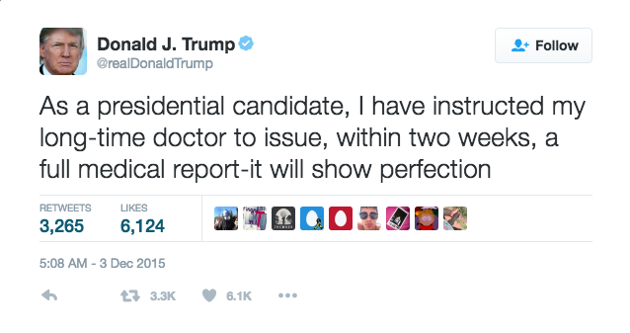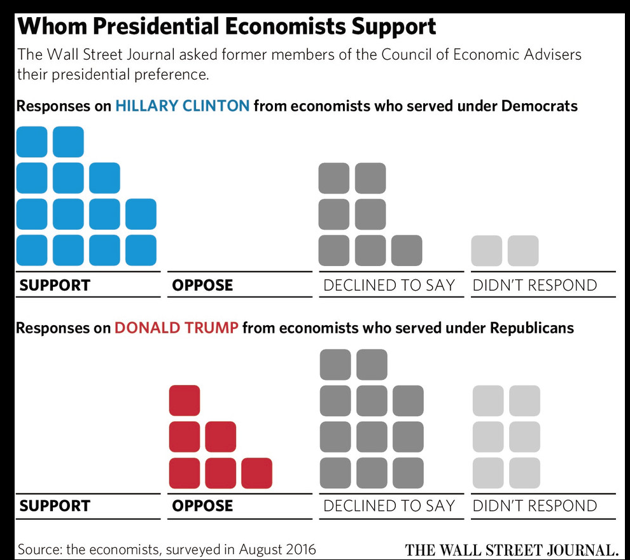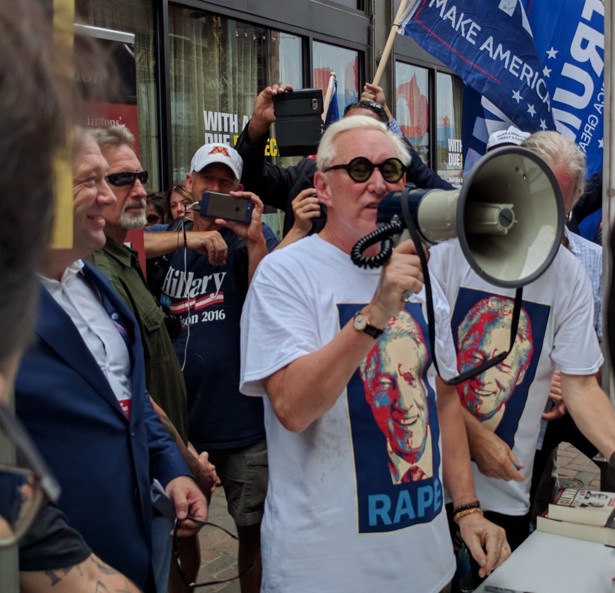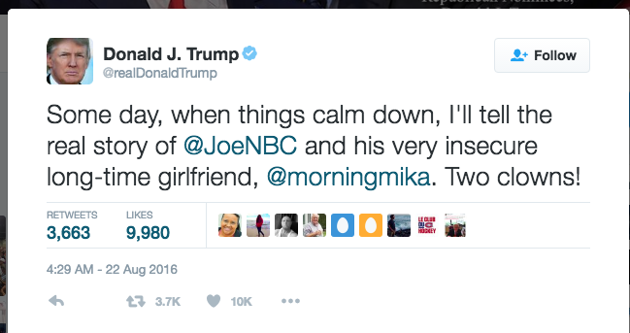Trump Time Capsule #89: The Medical Report
Every few entries in this series, I have mentioned that Donald Trump has departed from past norms by refusing to release either his tax returns, as all nominees since Richard Nixon have done, or a plausible medical report, an expectation that goes back even further than Nixon.
The tax return matters for Trump because it matters for everyone, let alone someone with his complex financial history. The medical report matters because, if elected, Trump would be the oldest person ever to assume the presidency; because his supporters have been recklessly suggesting that Hillary Clinton is ailing or impaired; and because Trump’s own bearing and behavior raise legitimate questions about whether he is perfectly well. And the health report matters because the only information Trump has put out so far on the subject has been an utter farce.
The “medical” report Trump offered late last year was a one-page letter, devoid of details, and written with Trump’s favored “win so much you’ll get tired of winning!” approach to nuance. Its memorable conclusion was: “Mr. Trump, I can state unequivocally, will be the healthiest individual ever elected to the presidency.”
Over the months I’ve speculated about who its real author might be. The North Korean News Agency? The Onion? The ghost of Mobutu Sese Seko? Trump himself? You get the idea. The asserted real author is a New York doctor named Harold Bornstein. Last week a doctor named Jen Gunter wrote about the many signs that made his letter simply impossible to believe.
Yesterday NBC News managed to interview Harold Bornstein in his office about the circumstances in which he wrote the letter. You will not do better in capturing the spirit of Campaign 2016 than to watch the brief NBC video below:
Bornstein tells NBC that he took his guidance on language from Trump himself, which comes as no surprise. My favorite part is the end of the clip, when Bornstein says “I got rushed, and I get anxious when I get rushed, so I tried to get four or five lines done as fast as possible.” More from NBC is here. Other angles here and here.
***
Every so often I think: later on, people will not believe that things actually happened this way—the way they are happening around us, in real time, in late August of 2016. But thus it stands, with 72 days until the election, and neither tax information nor a plausible medical report forthcoming from one of the two people who could become the 45th president.













